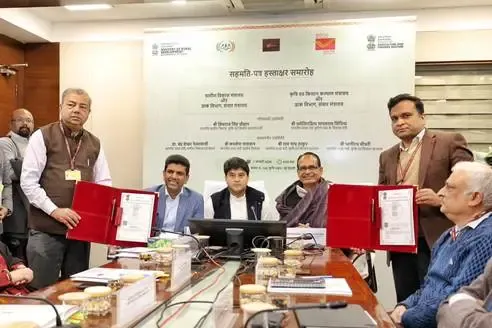Should ME-Card Rollout be Streamlined and PSL Cap Raised to Rs 1 Crore?

Synopsis
Key Takeaways
- ME-Cards are essential for microenterprises.
- Increasing PSL cap to Rs 1 crore could enhance credit access.
- Faster cheque clearance can improve MSME cash flow.
- Standardisation of banking procedures is necessary.
- Digitisation can reduce paperwork and boost transparency.
New Delhi, July 28 (NationPress) The PHD Chamber of Commerce and Industry (PHDCCI) held discussions with the Reserve Bank of India Governor, Sanjay Malhotra, on Monday, advocating for the swift implementation of the Micro Credit Facility Cards (ME-Cards) that were mentioned in the Union Budget.
These ME-Cards are designed as digital, custom credit solutions specifically aimed at microenterprises registered on the Udyam portal, with each card offering a credit limit of up to Rs 5 lakh.
The industry chamber proposed that the Priority Sector Lending (PSL) cap for loans through NBFCs should be raised significantly from the current Rs 20 lakh to Rs 1 crore.
Additionally, PHDCCI suggested that the interest equalisation scheme be expanded to encompass service exporters, as manufacturers currently benefit from subsidies on interest rates for pre-shipment and post-shipment export credits.
They also called for a faster clearance process for cheques deposited by MSMEs, aiming for a 24-48 hour credit window.
The chamber recommended renaming the ME-Cards to differentiate them from regular consumer credit cards and advocated for standardised issuance procedures, interest rate caps, and the establishment of a centralised portal for tracking card applications.
These proposals aim to improve credit accessibility, regulatory support, and financial efficiency for India's Micro, Small, and Medium Enterprises (MSMEs). The Chamber praised the government's initiative to broaden credit guarantee schemes for MSMEs and urged the RBI to ensure effective execution.
PHDCCI requested the RBI to set up dedicated help desks at field offices to assist MSMEs dealing with credit access issues.
Furthermore, the industry chamber highlighted the necessity of digitising and standardising banking documents across institutions to minimize paperwork and enhance transparency.
Other recommendations included regulatory actions against unfair practices by credit rating agencies and a reevaluation of NPA classification standards, proposing an extension of the overdue threshold from 90 to 180 days to better align with realistic MSME working capital cycles.










